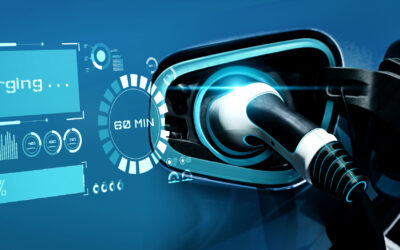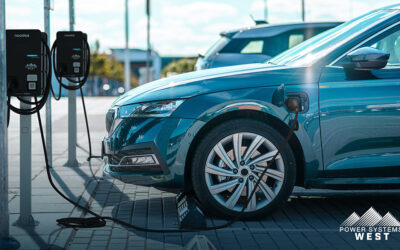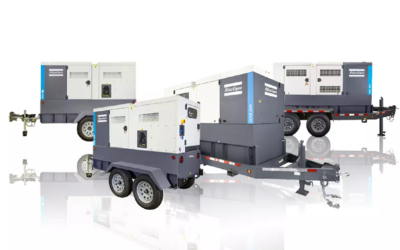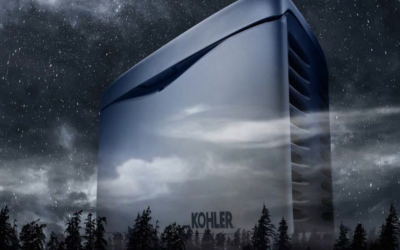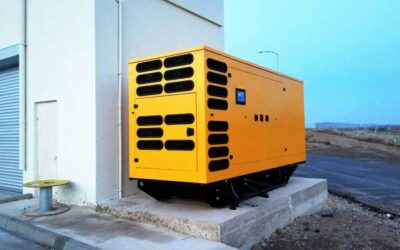“Charging the Future: Join the PSW team to learn about cutting edge EV charging solutions for your business” Category: Online EventDate: February 5th, 2024 Join us for an electrifying journey into the future of sustainable transportation at the...
Generator Safety Tips You Need to Know
Generator Safety Tips You Need to Know
Date: December 6th, 2022
It pays to install a backup generator when living in areas prone to floods, hurricanes, or power outages. It serves as an essential stopgap when there is a prolonged blackout due to interruptions on the power grid. However, learning various generator safety tips is vital to preventing hazards such as carbon monoxide, electrocution, or fire. The good news is that many generator brands, such as Kohler, come with step-by-step guides and safety tips to help users stay safe.
Here are some generator safety tips you need to know.

Keep Generators Outdoors
One of the golden rules of generator usage is to never run it inside your house or any structure connected to it, such as a garage or basement. The reason is that generators produce a toxic gas, carbon monoxide, which can cause deaths in as little as five minutes of exposure. For this reason, generators are strictly run outdoors in well-ventilated areas to reduce the risk of poisoning.
Purchase Generator with Inbuilt CO Safety Features
Although the threat of carbon monoxide poisoning is significantly reduced by running generators outdoors, it pays to have the CO levels detected. Quality and more advanced generators come with an inbuilt carbon monoxide detector that monitors the CO levels and switches the equipment off when the levels exceed the danger threshold.
If you own an old generator model, installing a CO detector is recommended to keep its levels monitored when the generator is running. Also, ensure the generator exhaust does not face windows, doors, or air conditioning units.
Choose the Right Wattage
Knowing your wattage requirements is critical when running a backup generator. If you are unsure of your wattage requirement, you risk overloading your generator, which can cause damage or fire. It can shut down in response if attached to a circuit breaker, but this is not guaranteed.
To reduce the risk of overloading your generator, purchasing one that matches your wattage requirement is recommended. Identify all the appliances that must remain running in the event of a power outage, from major appliances like refrigerators to minor ones like smartphones. Add up the wattage requirement of each device to get a rough estimation of how much power you will need in the case of a blackout. Then choose a generator based on your total wattage requirements.
Install Transfer Switch
A transfer switch connects your generator to your circuit panel powering your hardwired appliances. The idea behind the transfer switch is to avoid safety risks associated with using extension cords. It also displays wattage usage hence preventing the occurrence of overloads.
Use Heavy Duty Extension Cords
If you are yet to install a transfer switch, use heavy-duty extension cords designed for outdoor use. To prevent electrical hazards related to using extensions, ensure your extension is rated in watts or amps that match the total wattage required by your appliances. Also, ensure the cords and the plugs are in good condition (free from cuts) to prevent shock in case moisture or water reaches the device.
Never Backfeed Your Home
Backfeeding is powering your house wiring by plugging the generator into a wall outlet. It is considered the most dangerous practice that poses an electrocution risk to users, utility workers, and neighbors served by the same transformer.
In addition, it may bypass some household circuit breakers, damaging electronic appliances or causing an electrical fire. Therefore, avoid buying or using any extension cords made to backfeed your home. They can cause irreparable damages or numerous deaths.
Cool The Engine Before Refueling
One of the most unsafe practices is refueling a hot or running generator. It can lead to an instant explosion or fire. Instead of risking lives, turn off your generator and allow it to cool down for 15 to 30 minutes. Although it can suspend operation while cooling, this precaution is crucial regardless of the generator type or size.
Keep Fire Extinguishers Accessible
Although you might have considered all possible generator safety measures, it is advisable to keep a fire extinguisher close by in the event of an electrical fire breakout.
Use Protective Covers During On Weather
Running an inverter or portable generator in wet conditions like rain or snow can be hazardous. This is because wet conditions increase electrocution risk or explosions in freezing weather. While you can forego the generator during risky weather conditions, you can purchase a specially designed tent-like canopy from a leading store to cover the device. These protective covers protect the generator from weather impact, preventing electrocution and damage to the device.
Stock Up on Extra Fuel
Since no one can bet on how long an emergency blackout will last, it is prudent to stock up on extra fuel that can run for at least 48 hours. However, some local laws restrict the storage of certain amounts of fuel in residential areas. To be on the safer side of the law, consult with the local fire department for guidance. You might also consider a fuel stabilizer when storing the fuel for longer.
Conduct Regular Inspections
Performing periodic maintenance inspections is an incredible way of ensuring your generator functions efficiently when needed. Although different generators have different maintenance requirements, they all require regular checks on fuel and coolant, oil and filter, and an inspection on corroded nuts and possible leaks.
In addition, diesel generators become prone to breakdown if not run regularly. In this case, ensure to run your generator for at least 30 minutes even when it is not needed. Call for professional repairs if you notice a problem before it becomes a major issue.
Ensure Your Generator is Stored Properly
Besides standby generators designed to stay outdoors, most portable generators are stored indoors. While homes have different storage setups, the most suitable places to keep a generator are the garage or a shade. You can also use a generator cover to protect it from moisture and dust accumulation when it is not in use.
Conclusion
Generators have found a place in homes and commercial establishments for the ability to keep lights and operation on in the event of an emergency blackout. However, they can be equally dangerous if not correctly used or handled carelessly.
Contact Us
Recent Blogs
Power Systems West Announces Strategic Partnership with Noodoe to Pioneer EV Charging Systems Across the Pacific Northwest and Rocky Mountain Regions
Power Systems West Announces Strategic Partnership with Noodoe to Pioneer EV Charging Systems Across the Pacific Northwest and Rocky Mountain Regions Category: Press Release – FOR IMMEDIATE RELEASEDate: January 19th, 2024 Portland, Oregon – Power Systems...
Introducing Power Systems West as the Premier Equipment Dealer for Atlas Copco Power Technique in the Pacific Northwest and Rocky Mountain Regions
Introducing Power Systems West as the Premier Equipment Dealer for Atlas Copco Power Technique in the Pacific Northwest and Rocky Mountain Regions Category: Press Release – FOR IMMEDIATE RELEASE Date: September 19th, 2023 Portland, Oregon – Power Systems...
Introducing HVO: Kohler’s Groundbreaking Whitepaper
Introducing HVO: Kohler’s Groundbreaking Whitepaper Category: Kohler PowerDate: July 7th, 2023 At Power Systems West, we are thrilled to introduce an exciting development in the world of power generation. KOHLER, a renowned engineering thought leader and...
Power Systems West Legends Racer Continues Winning in First Semi-pro Season
Power Systems West Legends Racer Continues Winning in First Semi-pro Season In spring of 2022, Power Systems West became the title sponsor for Leon Tridle III, a rookie on the U.S. Legends Cars International (USLCI) racing circuit. Although it was his rookie season,...
Maintenance Recommendations for Diesel Generators
Maintenance Recommendations for Diesel Generators Maintaining a diesel generator is key to its longevity and performance. Diesel generators provide reliable power sources at sites where electricity may not otherwise be available. To ensure that your diesel-powered...




